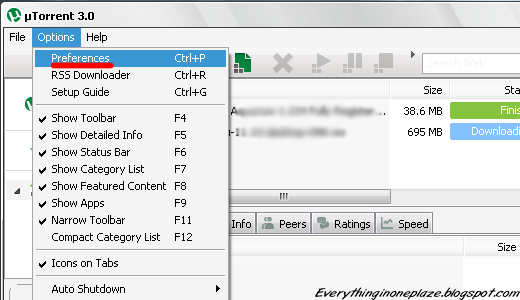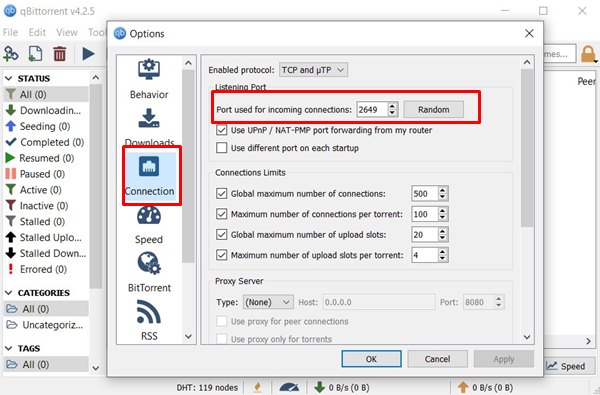
- #Faster bittorrent download speed install
- #Faster bittorrent download speed update
- #Faster bittorrent download speed driver
- #Faster bittorrent download speed download
(When you set your per-torrent connections and such to a reasonable number, you will establish reliable connections with plenty of peers.
#Faster bittorrent download speed update
(Do not patch your tcpip.sys or whatever-just update to the current official release.) The reality is that half-open connections should-rapidly-resolve to fully-opened connections or be timed-out, so you really don't need that many of them hanging around, anyway. Most users have no need for a setting that high, and Microsoft has removed the original limit in later releases/patches, and made it user-adjustable.
#Faster bittorrent download speed driver
Suddenly it became de riguer to advise Windows users to hack the TCP/IP driver and set their half-open connections to something huge, like 200.
#Faster bittorrent download speed download
As a plethora of hacks came out to remove this limit, somehow "half-open connections" became the scape-goat for slow download speeds. Then this should be 80% of that limit.)Įveryone got all excited when it was noticed that Microsoft had initially limited half-open connections in XP and Vista to small numbers.
#Faster bittorrent download speed install
(Unless you've got a Windows install with limited half-open connections.

(Upload speed is the limiter for most p2p applications.) and other people who use your connection.) (Be careful of setting this too high-it can strangle your browsing, media streaming, etc. It will open more upload slots as necessary to utilize available upstream bandwidth.) (You may never see this many connections depending on your per-torrent and active-torrent limits.)


Preferences: Bandwidth Global Settings Maximum Connections
Select "kilobytes" under "Speed Measurement". Click on "Settings", located in the top left corner of the page. To see the results in KB/s (which is what deluge's preferences uses): by default will give you results in Mbps (Mb/s). You also should run the test a few times, hours or days apart, to make sure your initial results were accurate. It's best to do this with all other applications, including Deluge, closed. If you don't set up your uploading setting properly, you will be forever choked on your downloads. To give them a decent chance of getting a complete piece to upload, new connections are three times as likely to start as the current optimistic unchoke as anywhere else in the rotation. If a downloader has a complete file, it uses its upload rate rather than its download rate to decide who to unchoke.įor optimistic unchoking, at any one time there is a single peer which is unchoked regardless of it's upload rate (if interested, it counts as one of the four allowed downloaders.) Which peer is optimistically unchoked rotates every 30 seconds. Peers which have a better upload rate but aren't interested get unchoked and if they become interested the worst uploader gets choked. It does reciprocation and number of uploads capping by unchoking the four peers which it has the best download rates from and are interested. The currently deployed choking algorithm avoids fibrillation by only changing who's choked once every ten seconds. Finally, it should try out unused connections once in a while to find out if they might be better than the currently used ones, known as optimistic unchoking. It should reciprocate to peers who let it download. It should avoid choking and unchoking quickly, known as 'fibrillation'. It should cap the number of simultaneous uploads for good TCP performance. There are several criteria a good choking algorithm should meet. Also, choking lets each peer use a tit-for-tat-ish algorithm to ensure that they get a consistent download rate. TCP congestion control behaves very poorly when sending over many connections at once. That's built into the bittorrent protocol, and works through what is known as "choking."Ĭhoking is done for several reasons. 
The most important thing to remember is: The speed of your downloads is determined by the speed of your uploads. They are intended to give users more guidance than the settings recommended in the FAQ, but are by no means definitive.








 0 kommentar(er)
0 kommentar(er)
